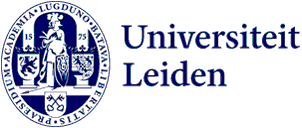Research
Introduction to qualitative interviewing for PhD
This course introduces PhD candidates of Leiden University from a wide range of disciplines into the intricacies and challenges of qualitative interviewing.
- Target group
- PhD candidate
- Teacher
- Freek Janssens
- Method
-
Training course
- Workload
- The workload for this course amounts to 30 hours, including attendance and preparation.
- Start dates 2024
- 16 October, 27 November
- Start dates 2025
- 29 January, 5 March, 3 September, 15 October, 26 November
- Language
- English
Why this course?
This course is intended for PhD candidates who will be conducting qualitative interviews during their doctoral research and who have little or no previous experience with qualitative interviewing. It is tailored specifically to those students who are working in multi-disciplinary research settings and who intend to combine qualitative interviews with other (quantitative) research methods. The course will cover the following topics:
- Epistemological and methodological aspects of qualitative interviewing.
- Practicalities of qualitative interviewing, such as the selection of informants, the making of a topic list, and the interview practices.
- Reflection on the value of qualitative interviewing to PhD research.
Format
This course consists of three intensive classes, assignments and an individual consultation. The individual consultation is optional and by appointment only. Attendance of all classes is mandatory. The readings have to be done before each class.
One week before the first class, participants are requested to submit a short statement outlining:
- Your PhD research including the main research question.
- The potential role of the qualitative interview within the research project.
- Specific questions and concerns that participants would like to be addressed in this course.
- The informant they wish to interview (short introduction of the informant and details of the interview arrangements such as date, time and location). Ideally, participants have made arrangements for this interview to take place in the week following the second class.
NOTE: You are required to attend all class days - so check your calendar! The course is also based on active participation so your camara and sound must be turned ON and you have to be in a quite environment.
Class 1
The first class deals with the nature of the qualitative interview as a methodological tool in relation to other (qualitative and quantitative) techniques. We will discuss epistemological concerns and questions regarding representation, validity and reflexivity.
In this class, we will also make a start with the set-up of the interview, in particular the selection of informants and the making of a topic list. Before the second class, participants will have made a topic list that is relevant to their own research projects and tailored to the informant that they have selected. Please bring a printed version of this topic list to the second class. More information will follow.
Class 2
During the second class we will focus on practicalities of conducting a semi-structured, open interview, including recording, note taking and transcribing, and on the role of the interviewer in the interview process. We will also discuss the different types of qualitative interviews and decide which one is most relevant for your own research.
In the week following the second class, participants will conduct a semi-structured, open interview. This interview will last between 30 and 60 minutes. It will be recorded and fully transcribed. Please bring a printed version of this transcript to the third class.
Class 3
The third and final class will reflect on the experience of conducting a qualitative interview. We will reflect on the role of the qualitative interview in your own research projects, especially in relation to other methodological tools. We will also discuss the ethics of using qualitative interviews as a research method.
Practical information
=> This course is ONLY available for PhDs from Leiden University, TU Delft or Erasmus <=
